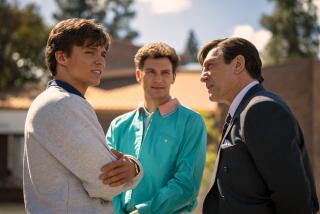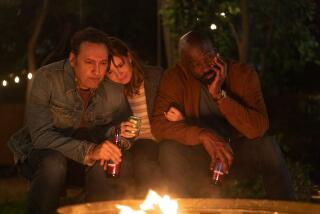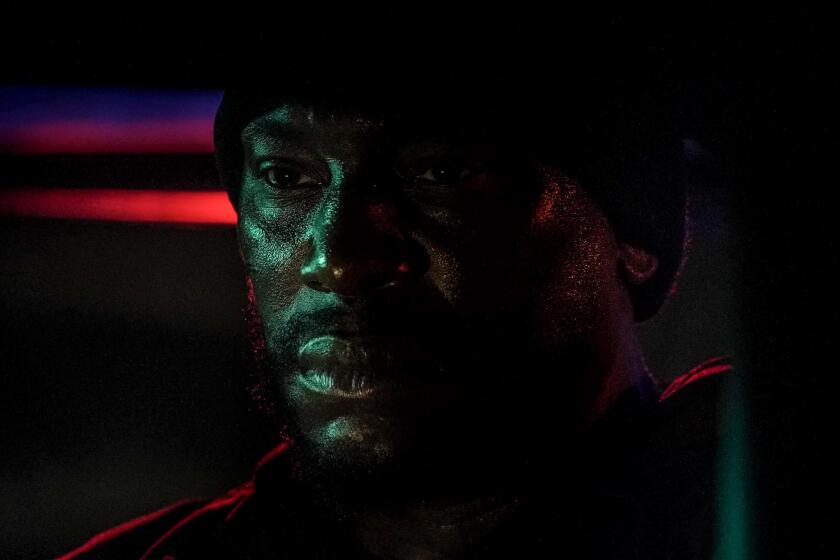‘The Iron Claw’ omits an entire Von Erich brother. We spoke with the director about it
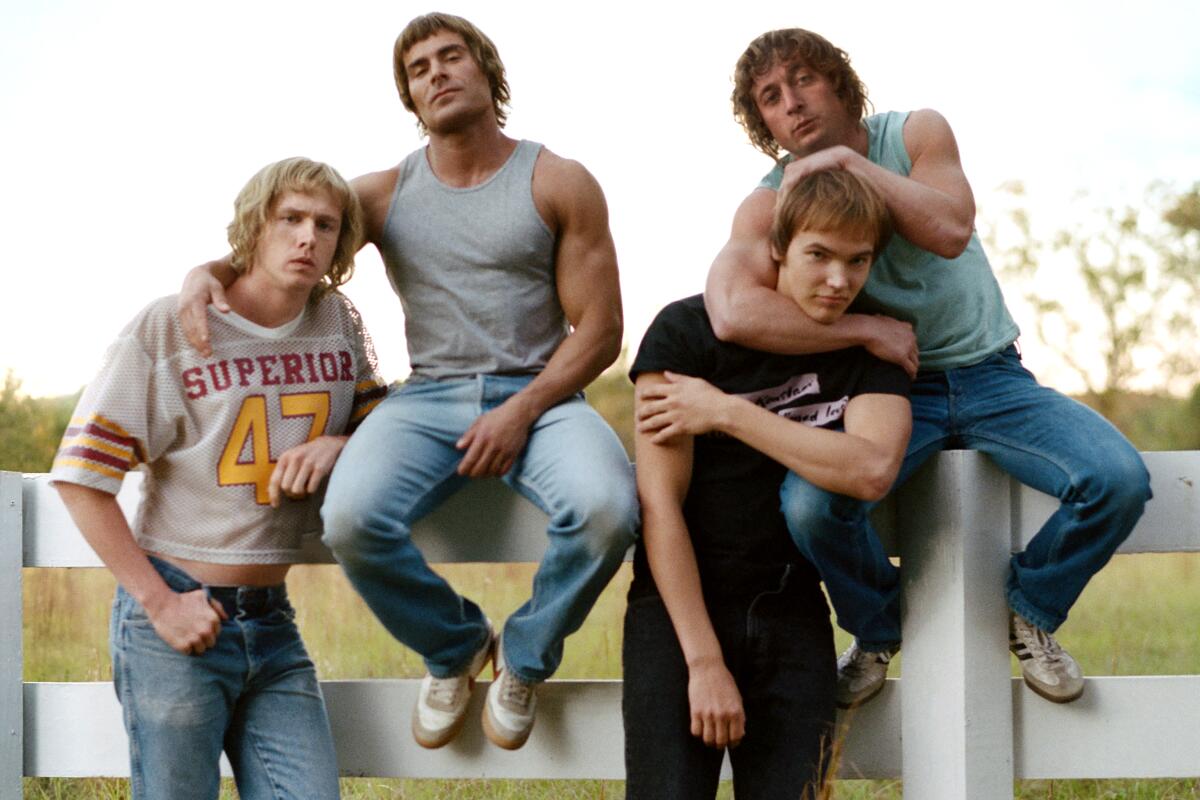
Warning: The following contains spoilers for “The Iron Claw.”
The story of the Von Erich pro-wrestling dynasty is the stuff of legends, or, as filmmaker Sean Durkin sees it, a Greek tragedy of fathers and sons. A close-knit wrestling clan of five Texas brothers raised in the ring by their world champ patriarch, the Von Erichs rose to fame as all-American golden boys in the 1970s and ’80s, only to be struck by one unimaginable loss after another.
Their saga gets the biopic treatment in A24’s “The Iron Claw,” written and directed by Durkin (“Martha Marcy May Marlene”), in theaters Friday. Inspired by the true tale of the Von Erich family, the ensemble is led by Zac Efron as Kevin, Harris Dickinson as David, Jeremy Allen White as Kerry, Stanley Simons as Mike, Holt McCallany as their domineering dad, Fritz, and Maura Tierney as their mother, Doris.
Molded into wholesome ring heroes by wrestler-turned-promoter Fritz in his syndicated World Class Championship Wrestling outfit, the brothers soared to stardom. Then tragedy fell and didn’t let up: The popular David died suddenly in 1984 while on tour in Japan; Mike took his own life in 1987 after suffering debilitating injuries; and onetime Olympic hopeful Kerry endured physical, legal and addiction issues before dying by suicide in 1993.
Their deaths are major turning points in “The Iron Claw,” as seen through the eyes of Kevin. But one glaring omission has not escaped the notice of wrestling fans: Chris, the youngest Von Erich, who also wrestled but failed to match his brothers’ success — and died by suicide in 1991 at age 21 — is nowhere to be found.
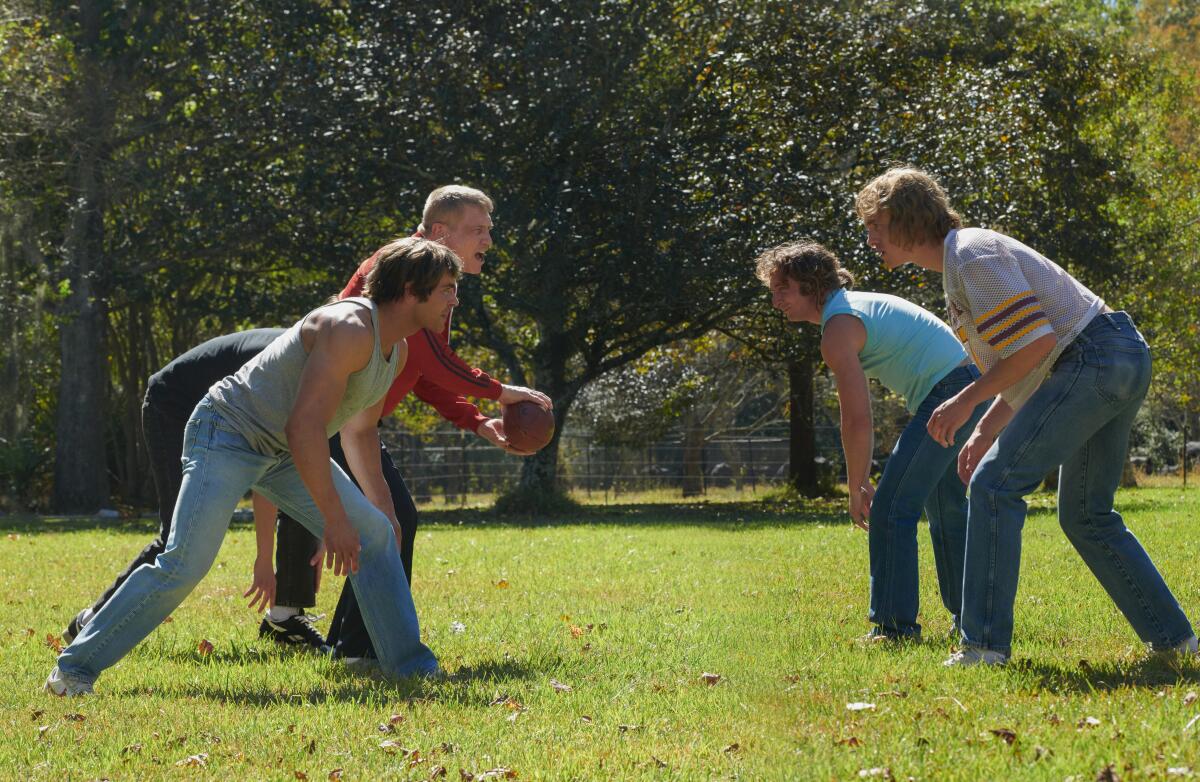
Chris was included in earlier “Iron Claw” drafts, but the relentless tragedy his death added to the story threw the movie off-balance, Durkin tells The Times. “There was a repetition to it, and it was one more tragedy that the film couldn’t really withstand,” he says of a version that included all five wrestling Von Erich brothers. “I honestly don’t know if it would have gotten made.”
Ironically, Chris’ life speaks directly to the themes that have made early audiences fall for “The Iron Claw”: the harm of toxic masculinity and extreme pressure, cycles of unaddressed grief and depression and the power of brotherly love. Unlike his father and siblings, who towered over 6 feet , Chris’ 5-foot 5-inch stature, asthma and a brittle bone condition hindered his desire to emulate the brothers he idolized in the ring. Two of them had already preceded him in death. Still, he kept chasing his wrestling dreams.
In 1991, reportedly frustrated with his progress and battling depression, he fatally shot himself at the family ranch weeks before his 22nd birthday.
“It was one more tragedy that the film couldn’t really withstand.”
— Sean Durkin on early ‘Iron Claw’ drafts that included Chris Von Erich
“Chris was in the script for five years,” says Durkin, 42, who eventually wrote the youngest Von Erich out, folding aspects of his story into the Mike character. “On a human level,” the filmmaker says, cutting Chris was “an impossible choice” that he fought against for several years, ultimately deciding it was best for the narrative.
He also decided not to contact Kevin Von Erich, the sole surviving brother, until after writing his script, speaking with the now 66-year-old retired wrestler only prior to pre-production. (Von Erich retired from wrestling in the ’90s, moved his family to Hawaii and was inducted into the WWE Hall of Fame along with Fritz, David, Kerry, Mike and Chris in 2009.)
Not involving the movie’s only living subject was just one of several creative decisions the filmmaker made regarding true events and the people involved, in order to deliver the drama he saw at the center of the family’s tale.
“When you’re trying to get a film made, you have to separate it at some point and say, ‘These are characters on a page, and this is a film, and there’s no way you’re going to fully capture the life of a person in a film,’” says Durkin. “You have to make difficult choices to try and get to something truthful or representative or emotional that reflects the core of the journey you’re choosing to tell within this family.”
Durkin spoke extensively about the complications of telling someone else’s truth and the additional alterations he made to get to the heart of the Von Erich story.
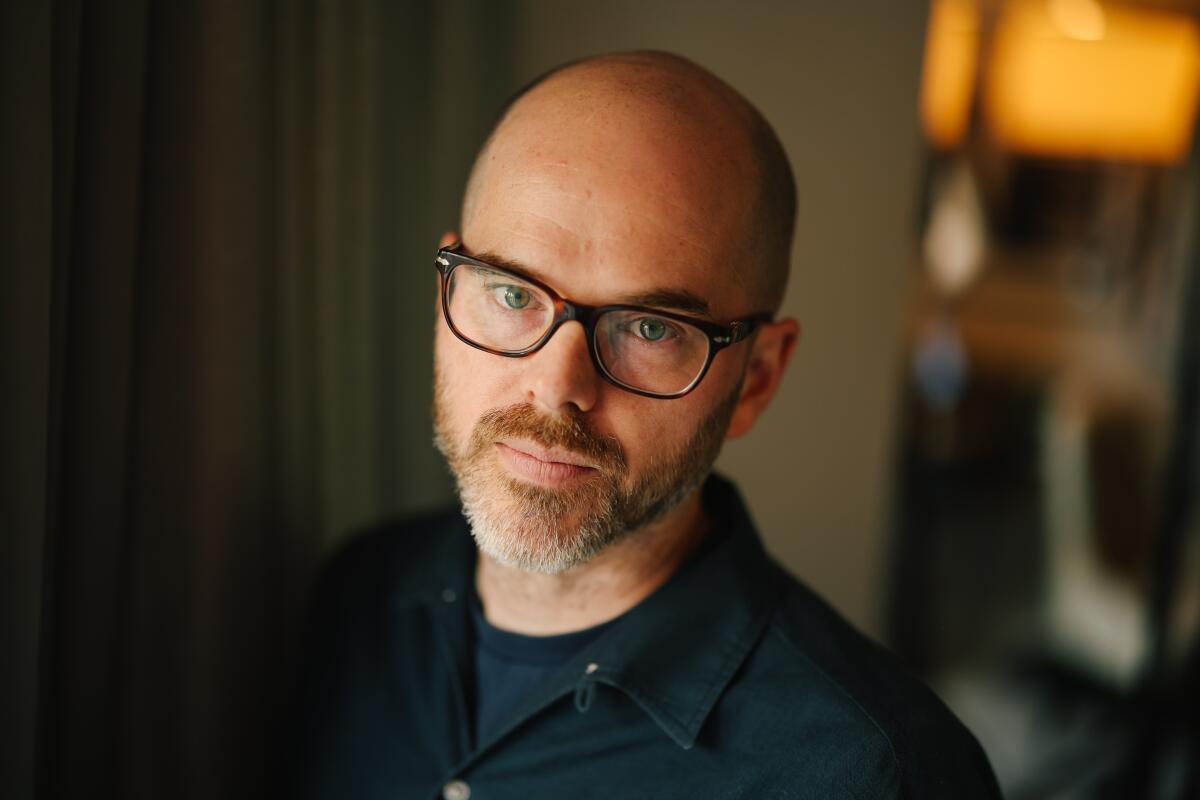
Kevin Von Erich
While working on a different based-on-true-life project, Durkin had grown close to sources who reacted negatively to the script’s version of the story. So he decided not to contact the real Kevin until after he had written “The Iron Claw.” (Von Erich, who has been supporting the film’s marketing campaign, was unavailable for comment for this story.)
“I felt as a filmmaker I needed to maintain that distance in order to be certain about the film I was making,” Durkin says. “My suspicion was that if I spent time with him, I would love him more, which would mean that when I had to make tough decisions of what to leave out, it could cloud my judgment on doing the best thing for the film.”
When he ultimately did speak with Kevin, by phone, he was nervous as he shared the broad strokes of the movie. He assured him that the planned drama was built around quotes from his interviews, Fritz’s interviews and multiple sources. “He said, ‘The thing I care about most is that people know how much my brothers and I loved each other,’” says Durkin. “And I said, ‘That is the movie I’m making.’”
Zac Efron and Jeremy Allen White are front and center in the first official images of wrestling drama “The Iron Claw,” set to be released in December.
Kevin Von Erich’s sons, pro wrestlers Ross and Marshall, came to the set and appear briefly in the film. The family screened the movie before Durkin and cast met Von Erich in person for the first time ahead of the Dallas premiere, where Von Erich hit the red carpet and praised Efron’s performance.
“There are some touching scenes, and I’m glad that they got the love between ‘Kevin’ and ‘Fritz,’ because that was definitely there,” Von Erich told ExtraTV, referring to the movie’s version of himself and his father.
“I knew it wouldn’t be 100% accurate because my dad wasn’t involved but those of you that know our family know that God played a major role in our story,” Marshall posted to X, formerly Twitter, in October. “Still excited about it and think it can help a lot of people that are suffering from loss. They nailed the wardrobe tho.”
Personal parallels
Enamored with pro wrestling from an early age as a child living in the U.K., Durkin grew up hooked on the Von Erichs’ larger-than-life exploits. He collected wrestling magazines and action figures, making up his own matches and feuds. “My first experience writing, in some ways, was playing with wrestling toys,” he says.
Kerry’s death in 1993 in particular haunted the then-11-year-old Durkin, who saw in the Von Erichs parallels with his own family. “My dad’s brother had died a few months earlier, and my dad came from a similar family. He was one of six brothers and had an overbearing father and a complicated relationship,” he says.
Years later, he came back to it as a film idea. Durkin researched old Von Erich interviews and appearances and drew from his own family history to inform certain emotional truths of the movie. In one scene, Kevin goes to his mother to ask her to tell Fritz to go easier on the younger Mike, who’s not as ring-ready as his older brothers. She replies, “Talk to your brothers. That’s what they’re for.”
‘That’s a direct line from my grandmother to my mother, who was one of five sisters,” says Durkin. “I recognized family traits from my own experience, filled in those gaps and made some human guesses. I’ve been told some of them were accurate.”
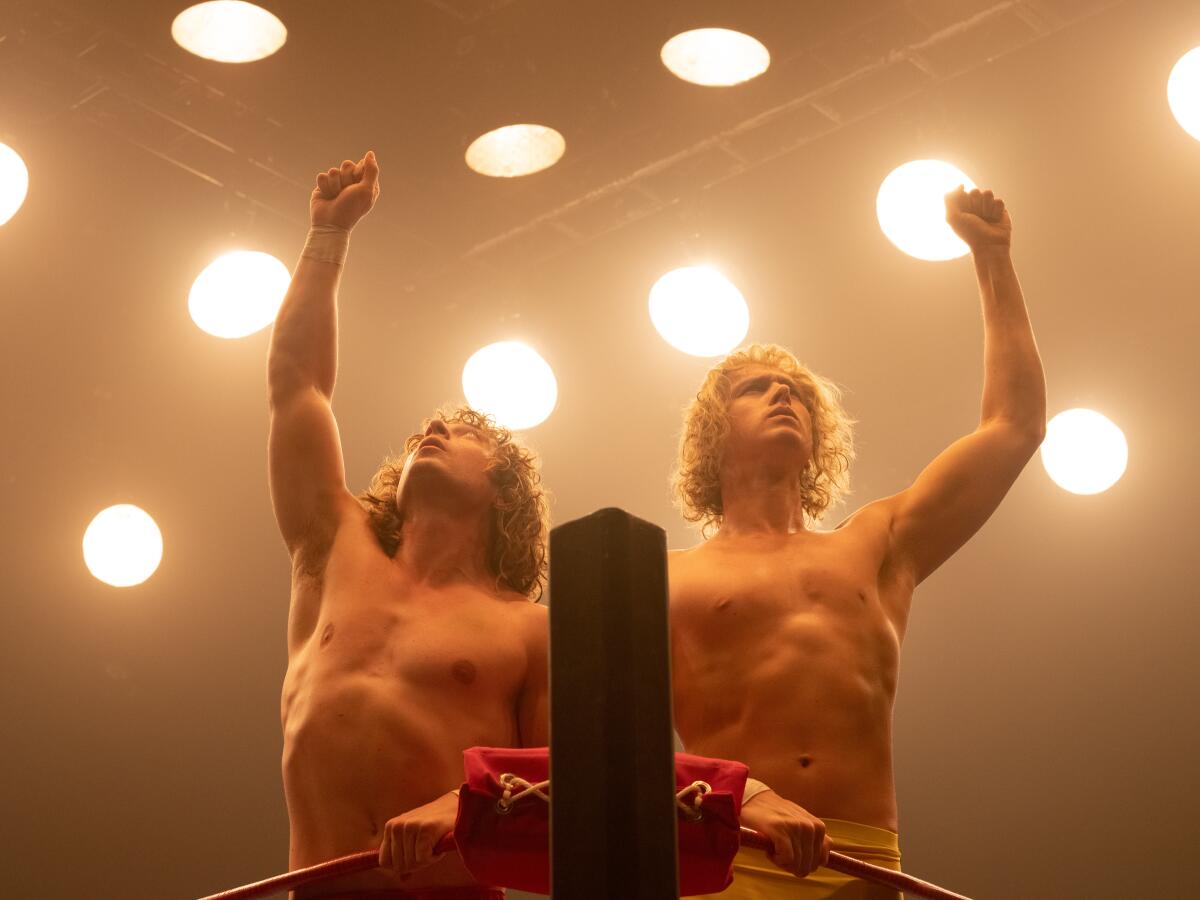
Fritz’s Nazi gimmick and the Von Erich name
Born Jack Adkisson in 1929, family patriarch Fritz Von Erich found early success adopting a Nazi villain persona during his own wrestling days in the 1950s, cultivating the signature “Iron Claw” hold in which he squeezed his rivals’ faces with his bare hand so hard, he’d sometimes draw blood.
But the film makes no mention of the Nazi character that made Fritz famous and gave three generations of pro wrestlers the “Von Erich” name. Instead, while on a date with Pam (Lily James), Kevin (Efron) explains that Fritz took inspiration from a relative. When Kevin and Pam later have their first child, he makes a point to register the baby’s birth certificate with the name Adkisson, not Von Erich.
“Fritz used to say it was his grandmother’s name,” says Durkin, who included the Nazi origin in early drafts. “But I recently asked Kristen, Kevin’s daughter, about it and she said none of them know for sure where it came from. So there’s what he said, there’s what they put out as a wrestling family, and there’s trying to get to some emotional truth behind it.”
One night recently on ABC’s “20-20,” reporter John Stossel tried to put a hammerlock on the “sport” known as pro wrestling.
Jack Jr. and the ‘Iron Claw’ prologue
In the film, Kevin tells Pam that he’s not the oldest brother but actually the second, born after Jack Jr., who died in 1959 and is seen briefly in the film.
Durkin alludes to but doesn’t explain Jack Jr.’s death in the movie‘s opening prologue, but by then, the family has already endured its first tragedy. Fritz says he bought them a new car to boost his career prospects so he can move the family out of its mobile home and “nothing will ever hurt us again.”
Fritz’s line is a nod to the loss of 6-year-old Jack Jr., who was accidentally electrocuted and knocked unconscious before drowning in a puddle of melting snow.
“That night would change not only my personal life, but my wrestling career as well,” Fritz said in author Ron G. Mullinax’s 2004 biography “Fritz Von Erich: Master of the Iron Claw,” adding that the guilt, anger and frustration poured out in his aggression in the ring and his determination to protect his other children.
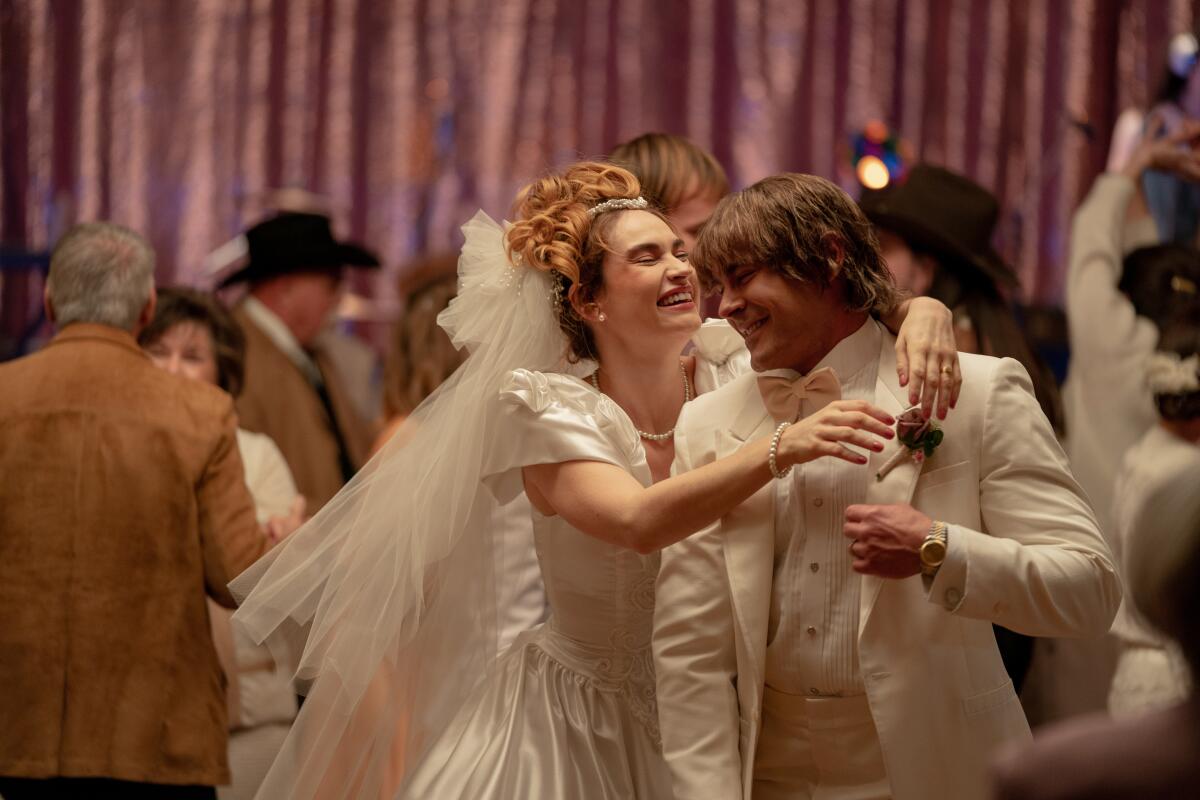
The Von Erich “curse”
In the film, Kevin worries that he will pass on a Von Erich curse to his own children. In real life, Kevin has stated that he does not believe such a curse exists.
Durkin was initially interested in the idea that Fritz’s Nazi gimmick was in itself a catalyst for the so-called Von Erich curse, a “more traditional deal with the devil that, on a mythological level, causes the curse, and his sons die as a result of that.” But it was the wrong message for the film.
“That’s not the curse,” he says. “The curse is about these boxes of masculinity that boys get put into. And when they don’t fit that, or when they’re more nuanced than that box and they can’t express themselves, they can’t talk about their emotions, that’s the curse. That’s the harm.”
The filmmaker doesn’t believe in the curse, either. “What I do believe in is the psychology of a curse — that if bad things happen in your family and bad things start to happen to you, you could feel that it’s a part of your destiny,” says Durkin.
In Vice’s “Dark Side of the Ring” docuseries episode “The Last of the Von Erichs,” Kevin reveals that at his lowest point, he attempted to rob a gun store hoping to be sent to jail. The incident is not in the film, but depicting Kevin grieving in isolation at the family’s famed Sportatorium arena away from his wife and children “felt truthful to me, based on what I had heard him describe those darkest days were for him,” says Durkin.
Kevin and Pam’s daughters
Kevin and wife Pam had two daughters, Kristen and Jillian, before sons Ross and Marshall were born. The film, however, rewrites family history: Ross and Marshall are born first, while Pam is later seen pregnant with their third child.
“It’s a film about fathers and sons and about breaking those masculine values,” says Durkin, who doesn’t mention either daughter in the movie. “So it was making that decision for the clarity of telling that story. And for Kevin to break that, to get to see Kevin father his sons in a different way to how Fritz fathered him.”
The filmmaker made an effort to prepare Kevin’s family members before they saw the film. “I wanted to give Kristen a heads up that Ross and Marshall were depicted as the oldest children, and I knew that was not the case,” he says. “It’s not like there’s anything I did out of ignorance. It was all considered. And I wanted to talk to them about why.”
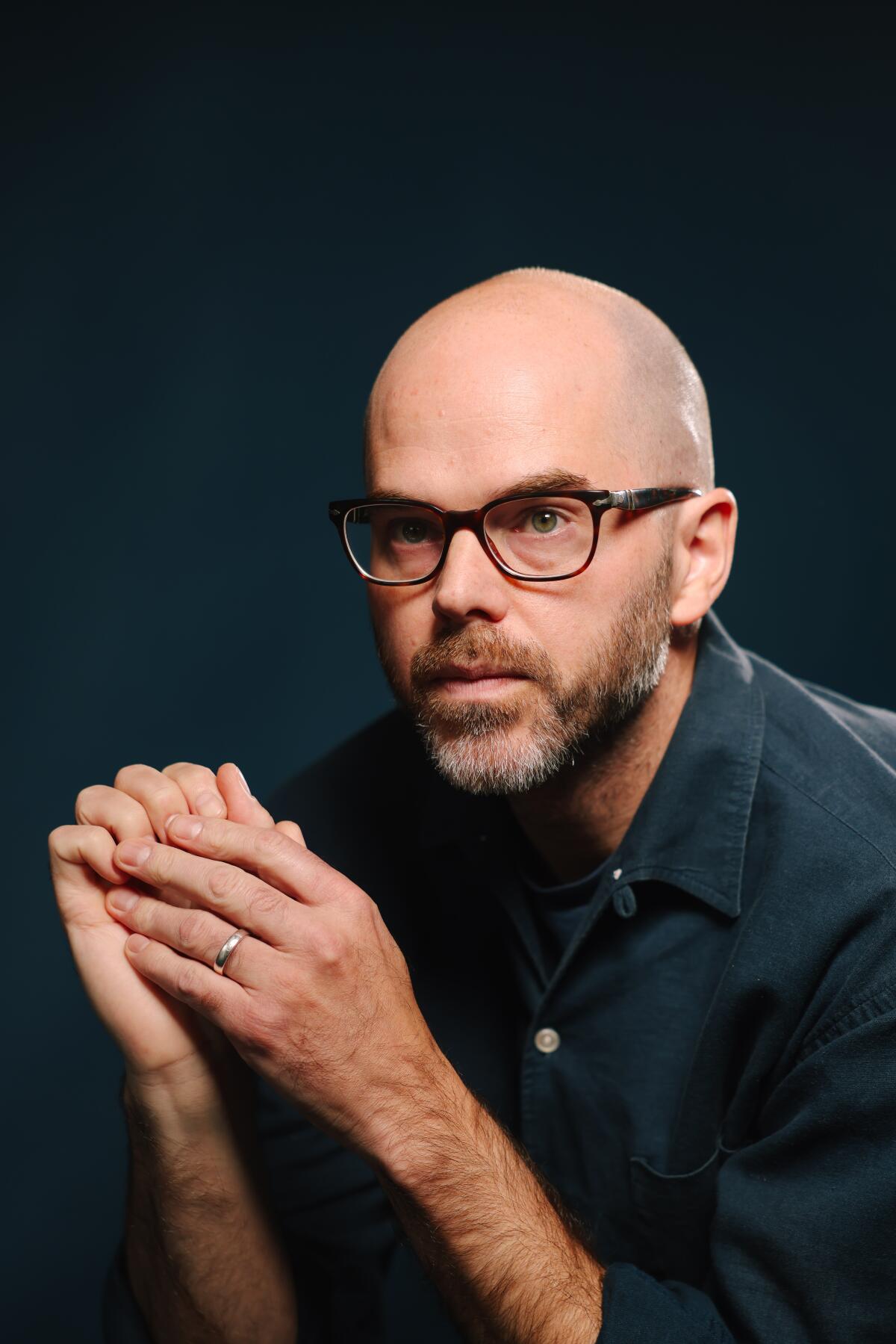
More ‘difficult choices’
Also left out of “The Iron Claw” are Mike’s marriage in 1985, two years before his death; David’s first marriage and the death of his infant daughter in 1978, as well as his second marriage in 1982; and Kerry’s 1983 marriage to Catherine Murray, with whom he had two daughters before they divorced in 1992. None of their partners are depicted or mentioned.
Kerry’s daughter Lacey — who went on to follow in her dad and grandfather’s footsteps as the family’s first third-generation wrestler, appearing in both WWE and TNA Wrestling — is not mentioned in the film, nor is her sister Hollie.
“It was hard for them to not be depicted,” admits Durkin. “We had a really honest conversation about it. And I think ultimately, they understood, and they’re really supportive of the film.”
To get to the final version of his script, many cuts and omissions had to be made. “Ultimately, the story, in order to make a movie about it, was about Kevin’s survival,” says Durkin. “So it’s about making difficult choices that service the movie about Kevin’s survival, which is the core that I chose to tell.”
Kerry’s story and timeline
After Fritz flips a coin to determine whether Kevin or Kerry will wrestle in the 1984 Parade of Champions in the late David’s memory — a colorful anecdote Fritz pushed to explain his choice at the time — it’s Kerry who gets the golden ticket to stardom, defeating Ric Flair to take home the NWA World Heavyweight Championship belt for the family.
The film’s editing suggests that it was later that night that Kerry took his motorcycle out for a fateful ride, leading to a terrible crash and the amputation of his right foot. In reality, though, the accident happened two years later.
It would be an additional four years before Kerry moved up to the WWF and worked through his disability in secret, a process that is depicted onscreen. “The wrestling community wouldn’t have accepted him, which is why he couldn’t talk about it,” says Durkin. “That’s a whole story on its own.”
Once Durkin decided “The Iron Claw” would focus on Kevin’s journey, it was a challenge to figure out how much of Kerry’s to pepper in, says Durkin. Kerry struggled with survivor’s guilt, mental health issues and a painkiller addiction, daughter Hollie told the “UnSKripted” podcast. As with Mike’s story, the film omits the substance-related arrests that immediately preceded Kerry’s own 1993 suicide.
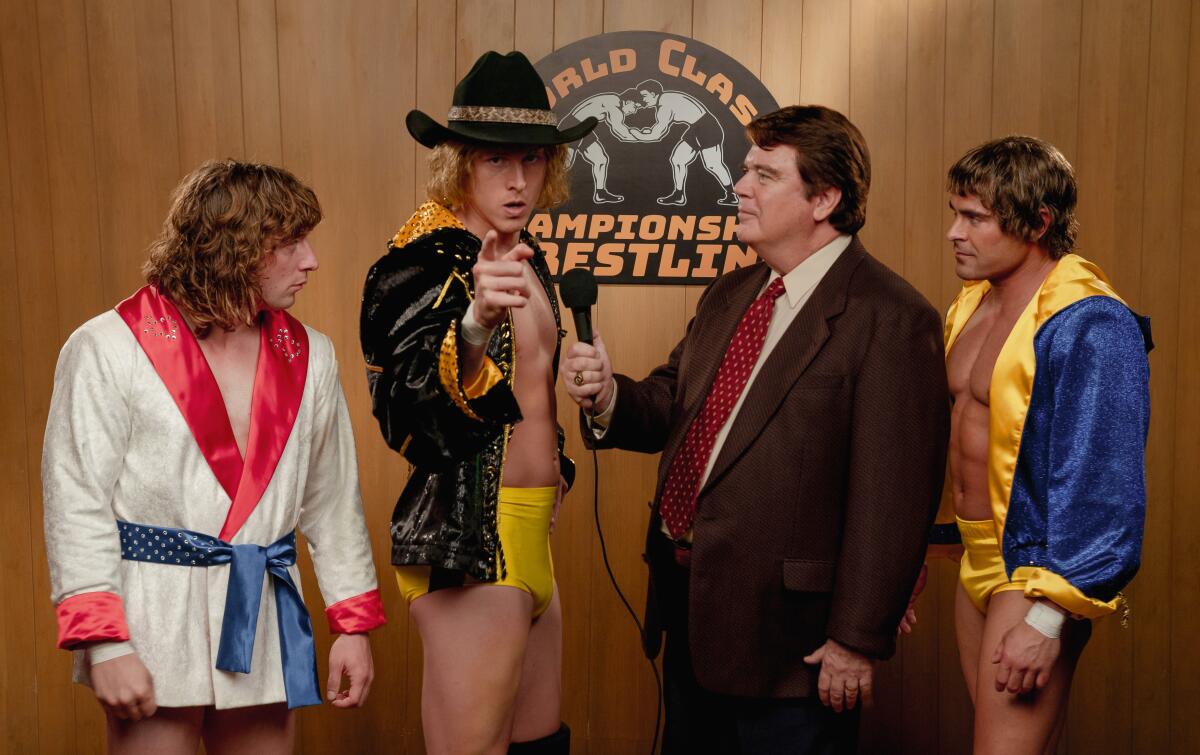
Kevin confronts Fritz
“The Iron Claw” folds aspects of the undepicted Chris, who yearned to be a wrestling star like his brothers, into Mike, who never wanted to wrestle but instead be a musician. It also trades details of Chris’ death with those of another brother, showing Kevin discovering Kerry after he’s shot himself in the heart outside the family home.
In actuality, it was Fritz who discovered Kerry, and Kevin who discovered Chris. In compositing their stories, Durkin sets up the emotional catharsis of his film, an explosive confrontation moments after Kerry’s death in which Kevin physically takes out his anger and grief on his father. (In real life, Doris blamed Fritz, and they divorced in 1992, months before Kerry’s death. In the film, she’s around to the end.)
But did this happen in real life?
In the 2006 documentary “Heroes of World Class Wrestling,” Kevin said that Fritz, after being diagnosed with terminal brain cancer in 1997, told him: “You’d kill yourself too if you had the guts. But you don’t have the guts your brothers had.” He also says Fritz pointed a .44 at him, the same caliber gun Kerry used to shoot himself.
“Kevin said he never actually confronted him in that way, when we talked about it,” says Durkin. “But it felt to me they must have had some confrontation because something escalated with a gun, with Fritz saying, ‘You should have killed yourself.’”
“I felt that my version of that was much less extreme,” says Durkin. “And whether it happened or not, I think on some emotional level Kevin did break free of something. And that’s really what it was about.”
More to Read
Only good movies
Get the Indie Focus newsletter, Mark Olsen's weekly guide to the world of cinema.
You may occasionally receive promotional content from the Los Angeles Times.

